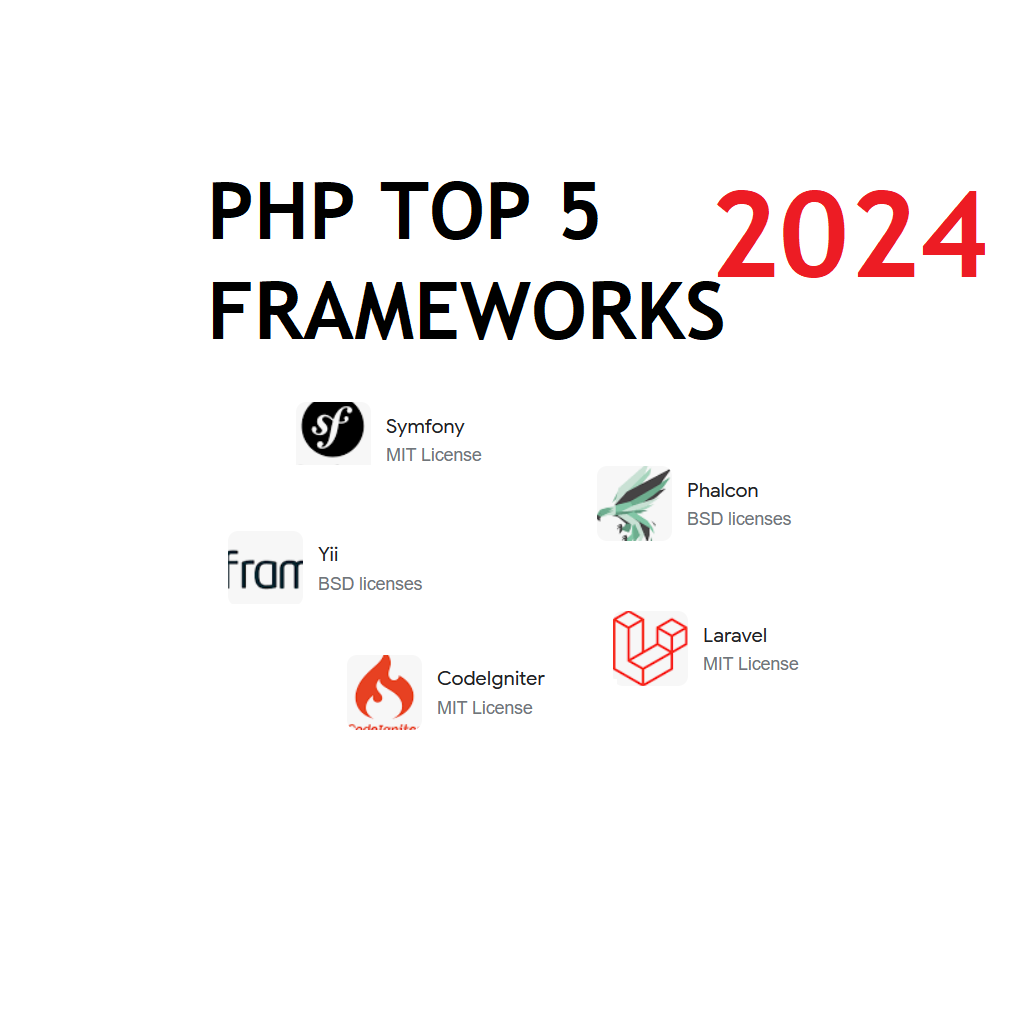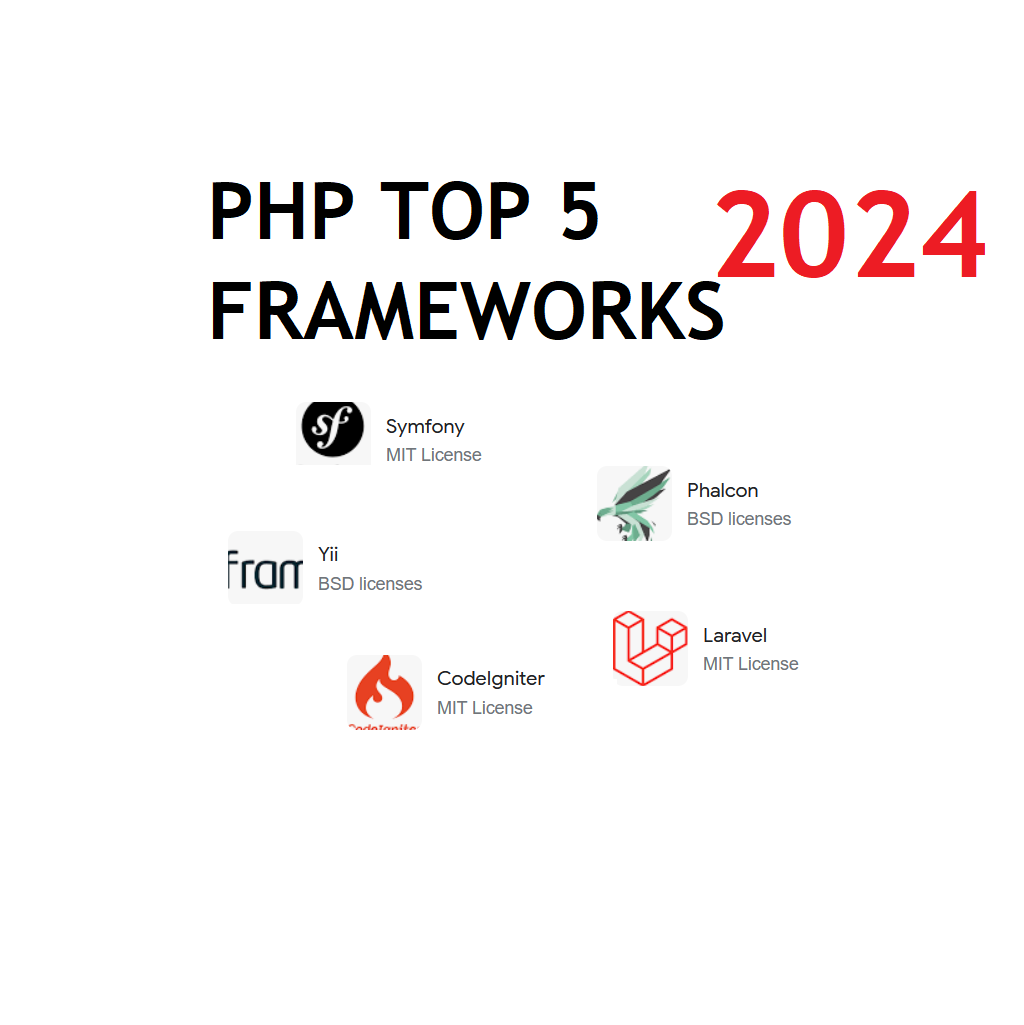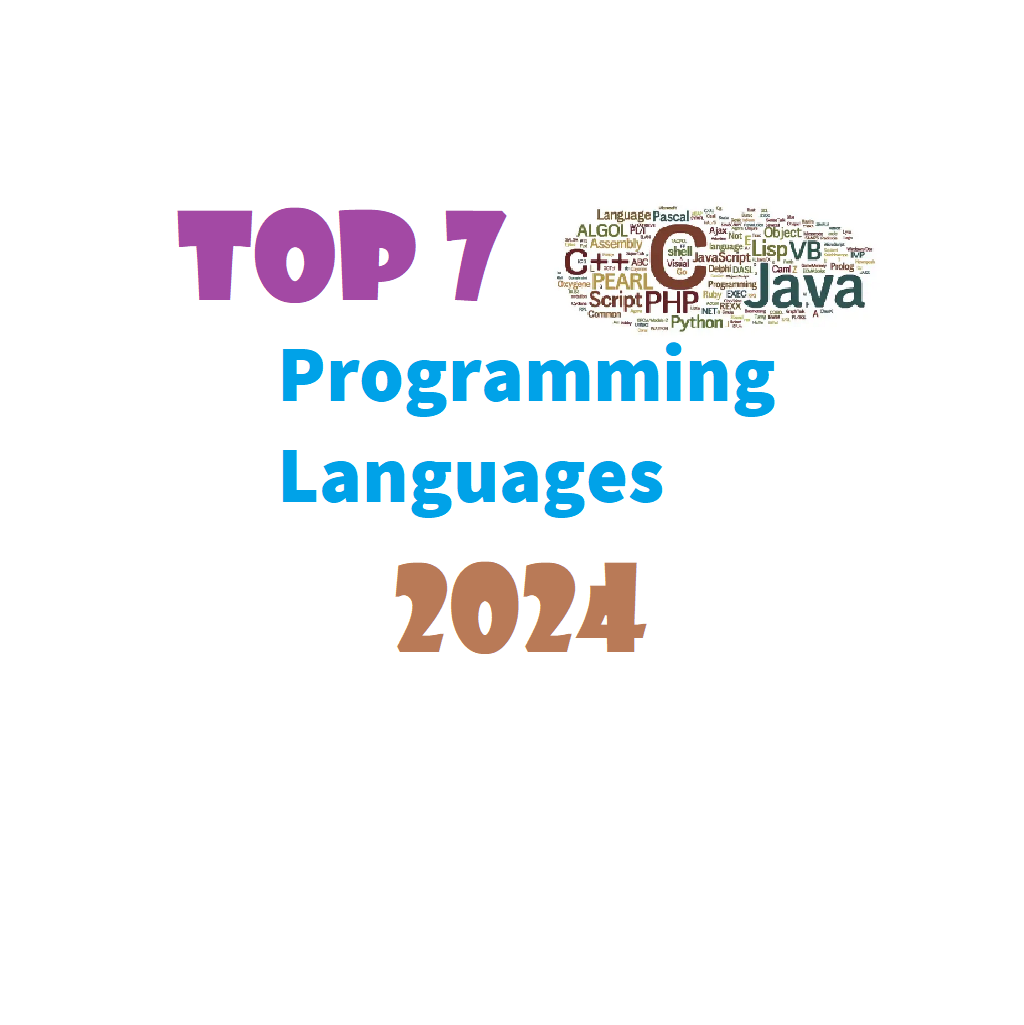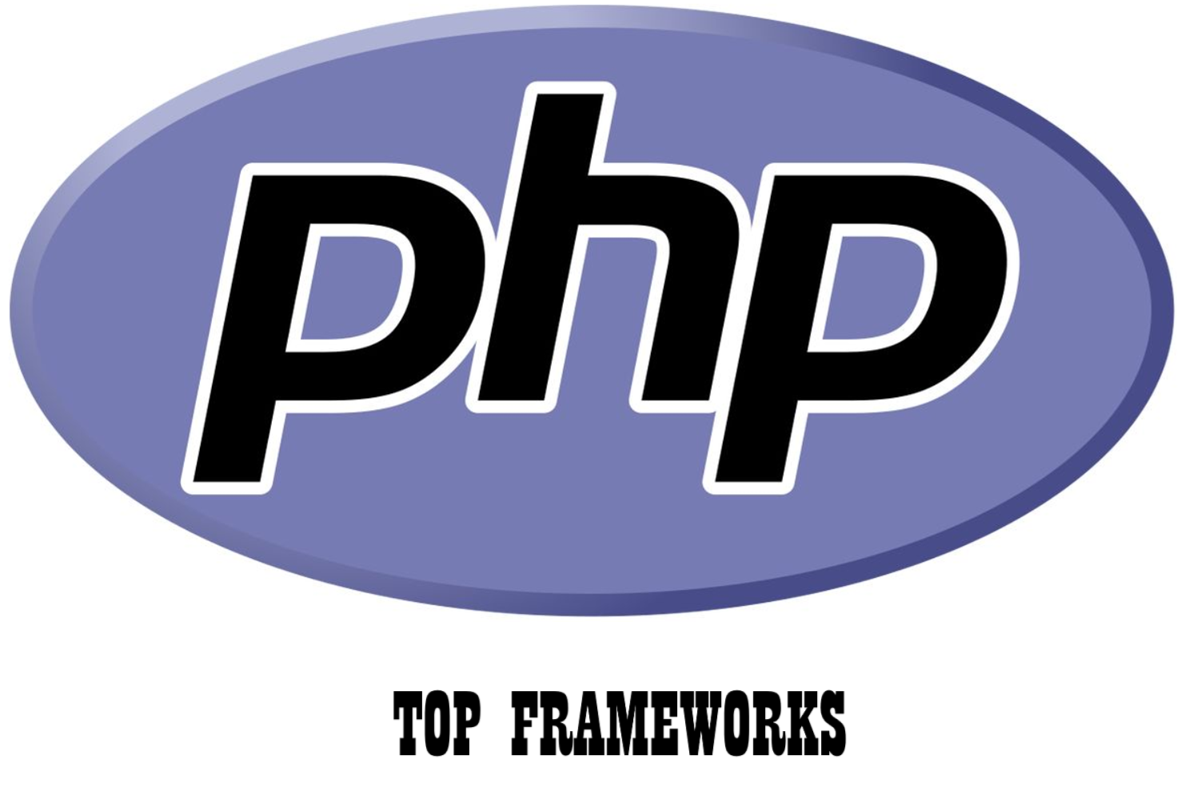PHP has established itself as a bread-and-butter earning language for countless developers in the web development landscape. Renowned for its versatility and widespread use, PHP is a server-side scripting language that forms the backbone of numerous dynamic websites and applications. Its primary strength lies in its ability to seamlessly integrate with HTML, offering developers the flexibility to embed dynamic content within web pages effortlessly. With a vast and active community, PHP enjoys robust support, ensuring a wealth of resources, tutorials, and third-party libraries that contribute to its ease of use and rapid development. Let’s look at the top 5 php frameworks for 2024.
One of PHP’s key features is its compatibility with various databases, including MySQL and PostgreSQL, facilitating efficient data management in web applications. The language’s widespread adoption across diverse industries, from e-commerce platforms to content management systems, underscores its reliability and stability. PHP’s open-source nature further enhances its accessibility, making it an ideal choice for developers seeking a cost-effective solution for web development projects. As the backbone of popular content management systems like WordPress, PHP serves as the linchpin for countless websites, making it a dependable and ubiquitous technology for developers to carve out their bread and butter in the dynamic world of web development.
PHP has several popular web frameworks that developers commonly use to build web applications. Keep in mind that the popularity and usage of frameworks can change over time, so it’s a good idea to check the latest information.
Here are five popular PHP frameworks to watch out for in 2024:
[1] Laravel: Laravel stands out as a premier PHP web framework, celebrated for its elegant syntax and developer-friendly features. Embracing the Model-View-Controller (MVC) architecture, Laravel simplifies the development process, offering a seamless experience for creating web applications. Its flagship features include the Eloquent ORM, which streamlines database interactions, and the Blade templating engine, enabling the creation of dynamic and reusable views. Laravel’s comprehensive ecosystem, with Composer integration for package management, fosters a collaborative community. Developers appreciate its focus on expressive code, task automation through Artisan, and robust security practices, making it a top choice for building scalable and maintainable applications.
Laravel has emerged as a top-earning PHP framework due to its versatility and developer-friendly features. It is widely utilized in the development of robust web applications, including e-commerce platforms, content management systems, and social networking sites. Laravel’s elegant syntax, coupled with the powerful Eloquent ORM and Blade templating engine, streamlines the development process. Its extensive ecosystem of packages and support for modern development practices, such as API development and microservices architecture, positions Laravel as a preferred choice for high-traffic and feature-rich applications.
[2] Symfony: Symfony, renowned for its maturity and extensibility, stands as a powerful PHP framework widely adopted for large-scale web application development. Following a modular approach, Symfony provides a set of reusable and decoupled components that developers can integrate seamlessly into their projects. Embracing the Model-View-Controller (MVC) pattern, Symfony ensures a structured and maintainable codebase. Its command-line tool simplifies project management tasks, offering efficient scaffolding and configuration options. Symfony’s commitment to best practices, such as dependency injection and configuration management, contributes to its reputation for creating robust and flexible applications. With a vibrant community and continuous updates, Symfony remains a solid choice for developers seeking a feature-rich and scalable PHP framework.
Symfony, renowned for its maturity and scalability, is prominently featured in enterprise-level applications where stability and extensibility are paramount. Its modular architecture and reusable components make it an excellent choice for large-scale projects. Symfony is often used in the development of customer relationship management (CRM) systems, complex backend systems, and enterprise-level web applications. Its flexibility and adherence to industry best practices attract businesses seeking a framework that can evolve with their growing needs, making Symfony a lucrative skill for developers engaged in enterprise-level projects.
[3] Phalcon: Phalcon is a distinctive PHP web framework that sets itself apart by being implemented as a C extension, resulting in exceptional performance. Its unique architecture, combining C and PHP, enables Phalcon to offer one of the fastest execution speeds among PHP frameworks. Developers benefit from features like the Model-View-Controller (MVC) pattern, an object-relational mapping (ORM) system, and caching mechanisms. Phalcon’s emphasis on speed and efficiency makes it particularly well-suited for performance-critical applications where responsiveness is paramount. The framework’s continuous updates and a dedicated community contribute to its appeal for developers aiming to optimize their web applications.
Phalcon’s unique selling point lies in its C-extension implementation, resulting in exceptional performance. This makes it a top choice for performance-critical applications such as real-time systems, gaming platforms, and applications with stringent speed requirements. Developers proficient in Phalcon often find lucrative opportunities in industries where low latency and high responsiveness are critical, such as financial systems, gaming platforms, and data-intensive applications.
[4] Yii: Yii is a high-performance PHP framework designed for modern web application development, embodying the principles of efficiency and the Don’t Repeat Yourself (DRY) philosophy. Offering a robust set of features, Yii includes the ActiveRecord pattern for simplified database interactions, a caching mechanism for performance optimization, and a comprehensive authentication system. Yii’s modular architecture facilitates the integration of third-party components, making it adaptable to a variety of project requirements. Known for its speed and efficiency, Yii provides developers with a solid foundation for building scalable and maintainable applications. The framework’s commitment to reducing redundancy and promoting clean, organized code enhances its appeal among developers seeking a balance between productivity and performance.
Yii, known for its speed and efficiency, is frequently employed in the development of high-performance web applications. Its usage spans a variety of sectors, including fintech, e-commerce, and healthcare. Yii’s adoption of the Don’t Repeat Yourself (DRY) principle and its robust set of features, including ActiveRecord and caching mechanisms, make it particularly appealing for applications that demand both speed and maintainability. Developers specializing in Yii often find themselves in demand for projects requiring a balance between performance and code elegance.
[5] CodeIgniter: CodeIgniter stands out as a lightweight and straightforward PHP framework, valued for its simplicity and ease of use. With a small footprint, CodeIgniter is an excellent choice for developers who prefer a framework that doesn’t impose rigid conventions. It excels in scenarios where a quick and straightforward setup is desired without sacrificing flexibility. CodeIgniter follows the Model-View-Controller (MVC) architecture, providing a structured approach to application development. Its user-friendly documentation and a minimal learning curve make it accessible to developers of varying experience levels. CodeIgniter’s versatility and focus on simplicity make it a pragmatic choice for projects where a lightweight yet capable framework is the preferred development environment.
CodeIgniter, with its lightweight and straightforward nature, remains a dependable choice for small to medium-sized projects. It is often utilized in scenarios where a quick setup and minimal configuration are essential. CodeIgniter’s simplicity and ease of use make it a go-to framework for rapid development, such as prototyping, small business websites, and projects with tight deadlines. Developers skilled in CodeIgniter may find opportunities in startups and small businesses seeking a pragmatic and nimble framework for their web development needs.

Choose the best as per your needs
Determining the “best” PHP framework depends on various factors, including the specific requirements of your project, your development preferences, and the skill set of your team. Each framework has its strengths, and the choice should align with the goals and characteristics of your development endeavor. Here’s a brief guide based on certain considerations:
- Laravel:
- Best For: Laravel is an excellent choice for developers who prioritize elegant syntax, productivity, and a wide range of built-in features. It is suitable for building medium to large-scale web applications, including content management systems, e-commerce platforms, and applications with complex business logic.
- Symfony:
- Best For: Symfony is well-suited for large-scale enterprise applications that require scalability, modularity, and a robust set of reusable components. If you’re working on complex projects with a focus on maintainability and adherence to best practices, Symfony is a strong contender.
- Phalcon:
- Best For: Phalcon’s speed and efficiency make it an ideal choice for performance-critical applications, particularly real-time systems, gaming platforms, and applications with low-latency requirements. If speed is a top priority and you’re working on resource-intensive projects, Phalcon may be the best fit.
- Yii:
- Best For: Yii is a good fit for developers seeking a balance between speed and code elegance. It is suitable for various applications, including fintech, e-commerce, and projects that demand high-performance features. Yii’s adherence to the Don’t Repeat Yourself (DRY) principle makes it suitable for projects with a focus on maintainability.
- CodeIgniter:
- Best For: CodeIgniter is a lightweight framework best suited for small to medium-sized projects where simplicity, ease of use, and a quick setup are essential. It’s a pragmatic choice for startups, small businesses, and projects with tight deadlines.
I hope you liked the article top 5 php frameworks for 2024. Ultimately, the “best” framework depends on your project’s specific needs and your team’s familiarity and expertise. Consider factors such as project scale, required features, development speed, and the learning curve for your team when making a decision. Additionally, stay informed about the latest updates and community feedback for each framework, as the technology landscape evolves over time.
Learn about pypy here.





